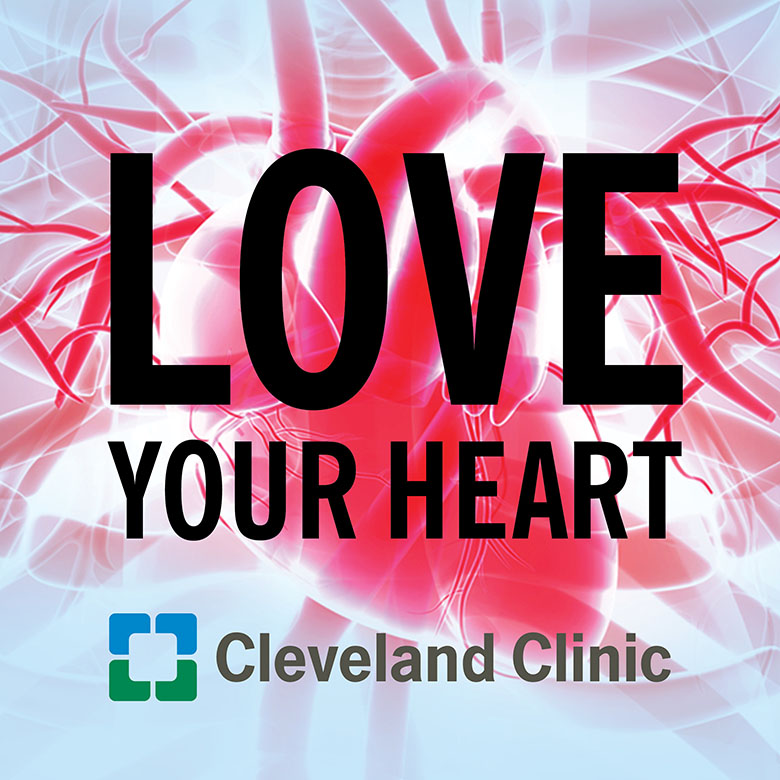What Happens When You Are Told You May Need Surgery?

The possibility of needing heart surgery can be overwhelming. Dr. Lars Svensson, Chairman of the Heart, Vascular and Thoracic Institute, provides a brief overview of what to expect if you need heart surgery. Cleveland Clinic has an advanced cardiovascular surgery department that offers many resources to make this process easier.
Learn more about the Cardiovascular Surgery Department.
Learn more about having heart surgery at Cleveland Clinic.
Subscribe: Apple Podcasts | Buzzsprout | Spotify
What Happens When You Are Told You May Need Surgery?
Podcast Transcript
Announcer:
Welcome to Love Your Heart, brought to you by Cleveland Clinic's Sydell & Arnold Miller Family Heart, Vascular and Thoracic Institute. These podcasts will help you learn more about your heart, thoracic and vascular systems, ways to stay healthy and information about diseases and treatment options. Enjoy!
Lars Svensson, MD, PhD:
Hello, I'm Lars Svensson, Chairman of the Heart, Vascular and Thoracic Institute here at Cleveland Clinic. So one of the questions we get asked is what happens when you potentially need heart surgery? Typically, you will have presented to your primary care doctor and sometimes you go straight to a cardiologist because you've had shortness of breath, chest pain, palpitations, dizziness. Those are sort of the typical symptoms you would have related to heart disease and the common ones related to valve disease. If you then go to your primary care doctor or you see a nurse practitioner, they would listen to your heart and then set up typically an echo. And if it's mainly chest pain, you might get an echo and then get a cardiac catheterization after that to see if you have any coronary artery blockages. But for example, aortic valve stenosis can cause you to have chest pain and often with that, shortness of breath and dizziness.
Once you have had that testing, then your primary care doctor, or if you went straight to a cardiologist, will advise you on further treatment and that will depend on the cardiac catheterization. If you have valve disease, that is also done. And also then the cardiologist would review the options for you. So if you've got aortic valve stenosis and you're young, then the decision making is should you have a mechanical valve or a biological valve with the idea, you'd later have a TAVR, which is a valve put in through the groin.
If it's a leaking valve, whether it's on the mitral valve or the aortic valve, we strongly encourage you to seek out a surgeon who can repair it for you because that's a very good option and we've shown really good results with that. If it’s an isolated aortic valve, mitral valves, then we can do those replacements or repairs with min-invasive approaches. For aortic valve, we use what we call a J-incision, so a small cut, and we go in and repair or replace the aortic valve. If it's a mitral valve and it's isolated, then there's a very good likelihood we could do that robotically, as long as you don't have also atrial fibrillation.
If it's coronary artery disease, then the options are stents versus if you have typically three-vessel coronary artery disease or a severe stenosis of the main artery to your heart, what's called the left main, so-called “widow maker”, then the options are either coronary artery bypass surgery and in some situations having a stent put in, so PCI. There are a lot of options for heart surgery. There are a lot of options for cardiology and new structural procedures and transcatheter devices that are options for you.
So once you get into the system, your primary care doctor, your cardiologist will then discuss their options and then advise you. Typically, you'll be here two, three days before surgery, depending on what testing you need, for example, a cardiac catheterization if that hasn't been done. Then you have your operation, a day or two in ICU, probably four to six days in hospital, depending if you have atrial fibrillation that needs to be controlled before you discharge. Two days after discharge, you get checked by our nurses to make sure you're not having any pain, no fever, you're healing up, you're happy with your medications, and then you can fly back home again. So that would be the typical process for those scenarios.
If you come to Cleveland Clinic, statistically in comparison to hospitals around the United States, the so-called STS database, we run observed-to-expected risk of death of 0.2 to 0.3. What that means in layman's terms is if you come here, you are two to three times more likely to survive heart surgery at Cleveland Clinic than anywhere else in the country. So we strongly encourage you to come here. We have people who help you come in, arrange and help with the travel aspects. We have nurses who can help with that. And we have a resource center also for any questions you have. So I encourage you to contact us. We'll be happy to see you. Thank you.
Announcer:
Thank you for listening. We hope you enjoyed the podcast. We welcome your comments and feedback. Please contact us at heart@ccf.org. Like what you heard? Subscribe wherever you get your podcasts, or listen at clevelandclinic.org/loveyourheartpodcast.

Love Your Heart
A Cleveland Clinic podcast to help you learn more about heart and vascular disease and conditions affecting your chest. We explore prevention, diagnostic tests, medical and surgical treatments, new innovations and more.
